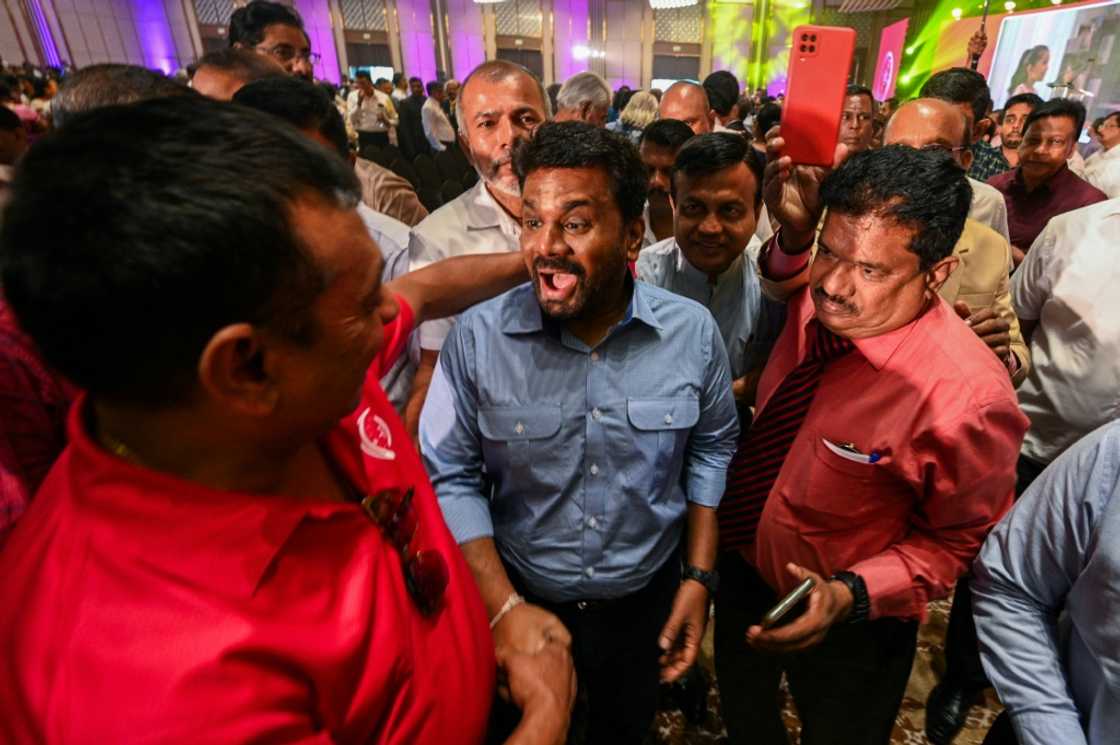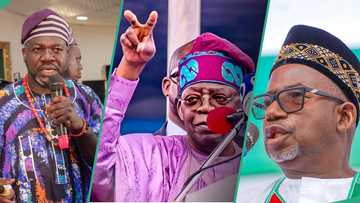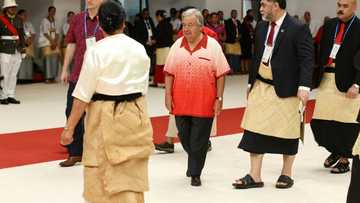Sri Lanka Marxists eye selective foreign capital if win presidency

Source: AFP
Don't miss out! Join Legit.ng's Sports News channel on WhatsApp now!
Sri Lanka's main Marxist leader and a key presidential hopeful in elections next month pledged on Monday to selectively welcome foreign investors, especially in green energy, if he wins.
Anura Kumara Dissanayaka, a 55-year-old former agricultural minister and vocal campaigner against graft, is popular with voters fed up with the endemic corruption he blames for the island's 2022 economic meltdown.
The September 21 vote will be the first since protesters furious at an unprecedented financial crisis toppled strongman president Gotabaya Rajapaksa.
President Ranil Wickremesinghe, elected by parliament after the ouster, is seeking a mandate to continue with a $2.9 billion IMF bailout loan to stabilise the economy.
But Dissanayaka promises to renegotiate that deal -- although he has not provided specific changes beyond wanting to cut heavy taxes.
"We will invite foreign companies into sectors like renewable energy, where we don't have the capacity to invest large amounts of capital," Dissanayaka said as he launched his manifesto.
PAY ATTENTION: Share your outstanding story with our editors! Please reach us through info@corp.legit.ng!
There are 39 candidates in the fray, but next month's contest is viewed as mainly between Dissanayaka, Wickremesinghe and the Leader of the Opposition Sajith Premadasa.
Both Wickremesinghe and Premadasa are ideologically aligned.
Dissanayaka contested the 2019 presidential election but came a distant third with just three percent of the vote.
He leads the People's Liberation Front (JVP), the main constituent in the National People's Power coalition, which has three seats in the 225-member parliament.
But his calls to cut taxes have found popular support among many.
The JVP led two unsuccessful armed insurrections in 1971 and 1987, both crushed with the loss of some 80,000 lives, and the party has since renounced violence.
Dissanayaka is pledging to scrap Sri Lanka's presidential system and revert the country to the British-style parliamentary democracy, which existed until 1978.

Read also
2027: "Southwest isn't afraid": Yoruba council dares North's move to woo ex-president against Tinubu
However, almost all Sri Lankan leaders in the past three decades have promised to scrap the powerful presidency, but failed to deliver.
PAY ATTENTION: Unlock the best of Legit.ng on Pinterest! Subscribe now and get your daily inspiration!
Source: AFP



